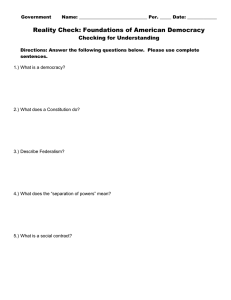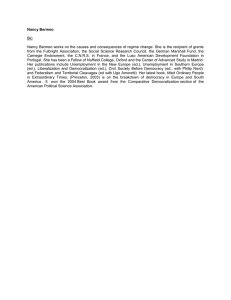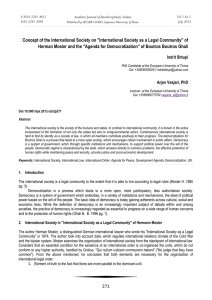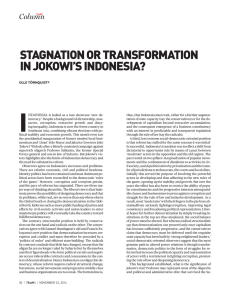Pol S 241 Comparative Politics: Quiz #3 (17 Feb. 2005) _____________________________________________________
advertisement
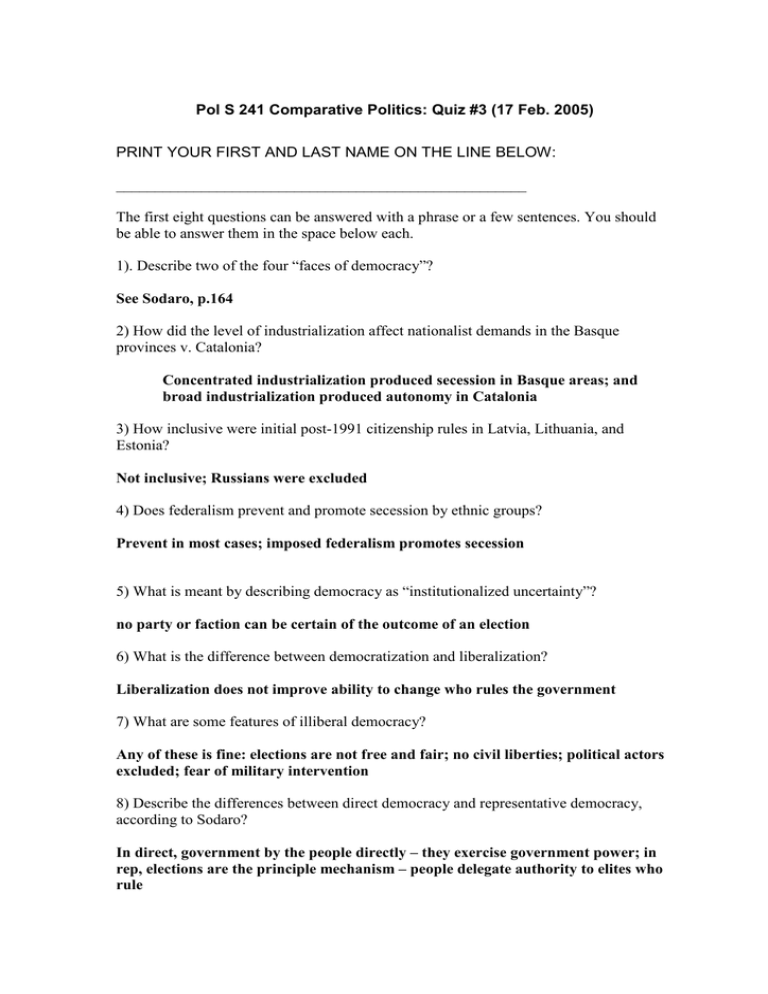
Pol S 241 Comparative Politics: Quiz #3 (17 Feb. 2005) PRINT YOUR FIRST AND LAST NAME ON THE LINE BELOW: _____________________________________________________ The first eight questions can be answered with a phrase or a few sentences. You should be able to answer them in the space below each. 1). Describe two of the four “faces of democracy”? See Sodaro, p.164 2) How did the level of industrialization affect nationalist demands in the Basque provinces v. Catalonia? Concentrated industrialization produced secession in Basque areas; and broad industrialization produced autonomy in Catalonia 3) How inclusive were initial post-1991 citizenship rules in Latvia, Lithuania, and Estonia? Not inclusive; Russians were excluded 4) Does federalism prevent and promote secession by ethnic groups? Prevent in most cases; imposed federalism promotes secession 5) What is meant by describing democracy as “institutionalized uncertainty”? no party or faction can be certain of the outcome of an election 6) What is the difference between democratization and liberalization? Liberalization does not improve ability to change who rules the government 7) What are some features of illiberal democracy? Any of these is fine: elections are not free and fair; no civil liberties; political actors excluded; fear of military intervention 8) Describe the differences between direct democracy and representative democracy, according to Sodaro? In direct, government by the people directly – they exercise government power; in rep, elections are the principle mechanism – people delegate authority to elites who rule Pol S 241 Comparative Politics: Quiz #3 (17 Feb. 2005) The next two questions should be answered in one or two paragraphs. 9) Discuss how three of Sodaro’s conditions for democracy affect the prospects for democratic consolidation in Afghanistan. See Sodaro, p.222-26 10) Discuss two of Diamond’s five “drivers” or “causes” of Third Wave democratization. Economic (performance) Economic Development Reorientation of the Catholic Church International Actions and Pressures Changing Int’l Norms and Conventions (see Diamond, p.14-18 for details)





